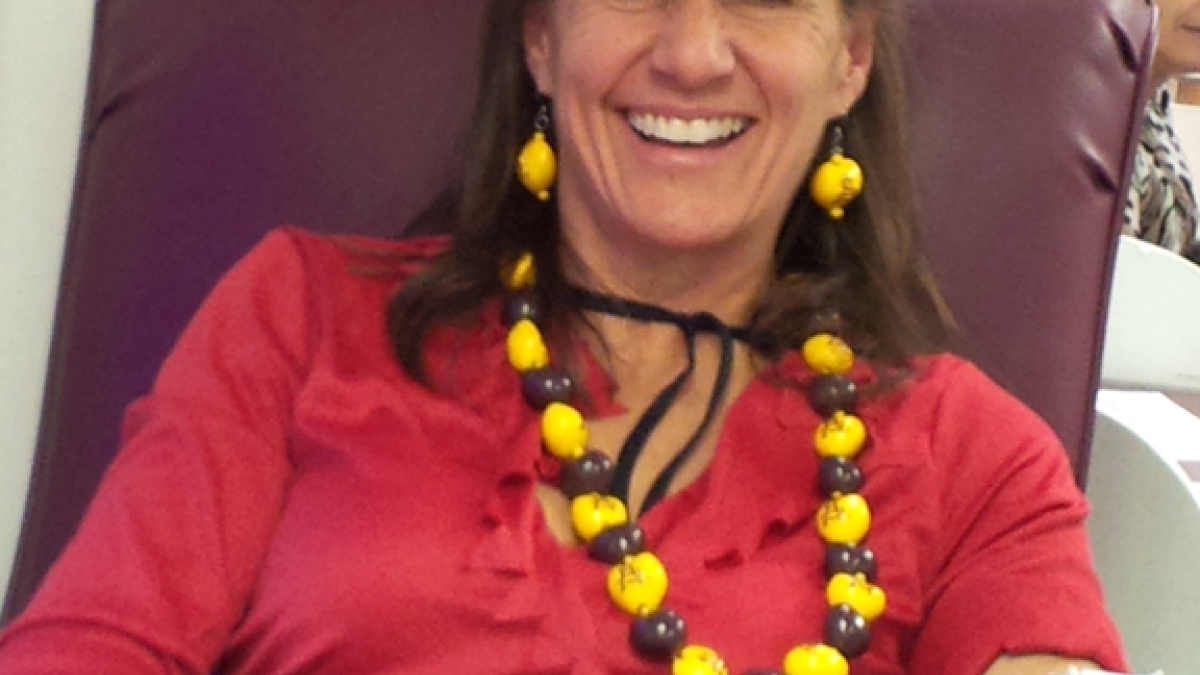Hero Award for blood donations goes to hard-working 'vampire'

Margaret (Maggie) Lacerenza is not a vampire, but she managed to coax more life-giving blood from Arizona State University staff than an army of the undead.
United Blood Services (UBS) recently honored Lacerenza, an accounting assistant at the Graduate College, with a Hero Award, their top award for outstanding leadership in blood drive coordination.
ASU was the blood drive leader with 61 drives held on campus during 2012, and a total of 1,447 blood donations. Lacerenza coordinated five of those drives, but was the only coordinator at ASU to receive the award because of the extent of her efforts.
The rigorous criteria for the award included meeting goals for each drive, using online scheduling to fill appointments, and holding blood drives during the most difficult time of the year. Coordinators must reach 50 points in the various criteria to qualify for the award. Only 2 percent of all blood drive coordinators qualify for the Hero Award. Lacerenza was the highest-scoring coordinator in Arizona, with 75 points.
“Most of the drives at ASU were coordinated by or for students,” says Lacerenza. “I decided to focus on staff.” She became a one-woman marketing machine, posting flyers around campus, emailing and networking with staff members. “If you make it convenient for staff, and communicate with them, they are much more willing to volunteer,” she says.
Many blood donors came from the staff at the Graduate College, Student Services, the University Registrar’s office and the Consortium for Science Policy. “I also became like a door-to-door sales salesman,” she says, walking unfamiliar halls and knocking on office doors with only one or two staff members present. She used vacation days to be present when the UBS bus arrived, to stay and greet donors and thank them for their contribution.
Of her dedication to the drives, she mentions the 11-year-old boy with leukemia she met at a UBS dinner, who said that he depended on regular transfusions. “His biggest fear was that they would run out of his blood type and he would die.”
“You can give money to a cause, but donating blood is more personal. You know your blood will be in another person’s body, someone for whom it may be a life-or-death situation.”